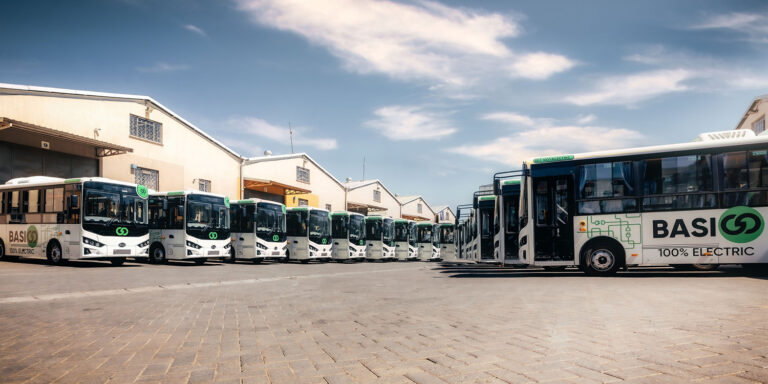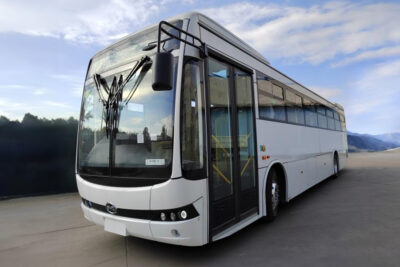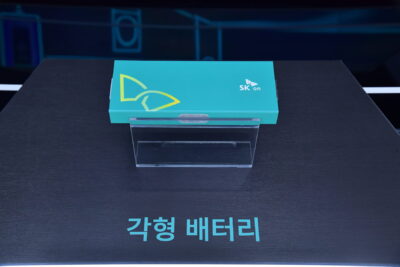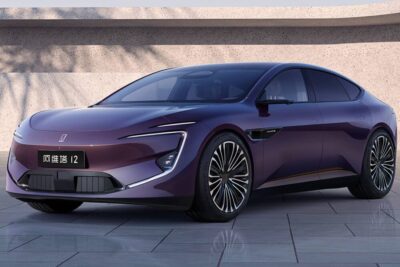BasiGo garners $3 million in Kenya
The investment in Kenyan electric bus manufacturer BasiGo comes from Corporation For Africa & Overseas (CFAO), which also owns Africa’s largest automotive distribution network and is a subsidiary of the Japanese group Toyota Tsusho, the trading arm of the Toyota Group.
The Kenyan bus maker assembles BYD electric buses and provides charging and maintenance services for bus operators. BasiGo says it already has over 500 reservations from bus operators in Nairobi and an additional 100 reservations from operators in Kigali, Rwanda. The start-up is offering public transport operators its 25-seater “K6” and 54-seater “E9 Kubwa” BYD models assembled in Kenya. With the fresh investment, the company says it now aims to deliver 1,000 locally-assembled electric buses over the coming three years.
The investment is backed by venture capital firm Mobility54, the corporate venture capital arm of Toyota Tsusho, which led a $6.6 mn funding round in 2022 along with Trucks VC, a transportation-focused venture capital fund in Silicon Valley, and Novastar Ventures, a global VC supporting entrepreneurs in Africa.
The fresh funding will enable the start-up to speed up the manufacture and delivery of its electric public transport vehicles for Kenya and Rwanda. “Our electric buses have already made significant progress, with more than 1.5 million kilometres travelled, 2.1 million passengers transported and 680 tonnes of greenhouse gas (GHG) emissions reduced since this month”, says BasiGo CEO Jit Bhattacharya.
BasiGo operates a Pay-As-You-Drive financing model in partnership with KCB Bank and Family Bank to provide up to 90% financing to transport companies to purchase an electric bus. BasiGo says this model brings electric bus costs almost on par with the upfront cost of a diesel bus. Operators can then subscribe to BasiGo and the company a KES 20 ($0.17) per kilometre fee, which includes leasing the battery, charging at BasiGo charge stations, and service and maintenance provided by BasiGo.
In August last year, BasiGo made a second entry into the African market with the launch of BasiGo Rwanda, partnering with AC Mobility, Rwanda’s provider of automated fare collection systems for public transport. The partnership came the same year the government announced it would procure 200 electric buses for bus operators in Rwanda by the end of 2024.
Akira Wada, Managing Director of CFAO Kenya, said, “Through this investment, we are not only supporting the growth of the electric vehicle industry but also contributing to the development of a sustainable green energy value chain that will benefit communities across Africa.” This commitment underscores the shared vision of BasiGo and CFAO Group to drive sustainable growth and prosperity across the region.”
The news comes as the Kenyan government just announced green number plates for electric vehicles that would enable the allocation of incentives and privileges for non-polluting vehicles. The government has also drafted an electric mobility plan to transition the nation’s vehicles off fossil fuels.
BasiGo is not the only electric bus manufacturer in Kenya. In 2022, the Swedish-Kenyan technology company Roam (formerly Opibus) launched an all-electric public transport bus called Roam Rapid. Roam also signed a large-scale supply agreement with African financing platform M-Kopa for its electric motorbikes. Now, with two electric bus manufacturers, among other electric vehicle manufacturers in the country, and a government supporting the uptake of non-polluting transport, Kenya looks set to possibly becoming an electric mobility hub for the rest of the continent.
sruptafrica.com, afrik21.africa, thefounder.africa, twitter.com






0 Comments